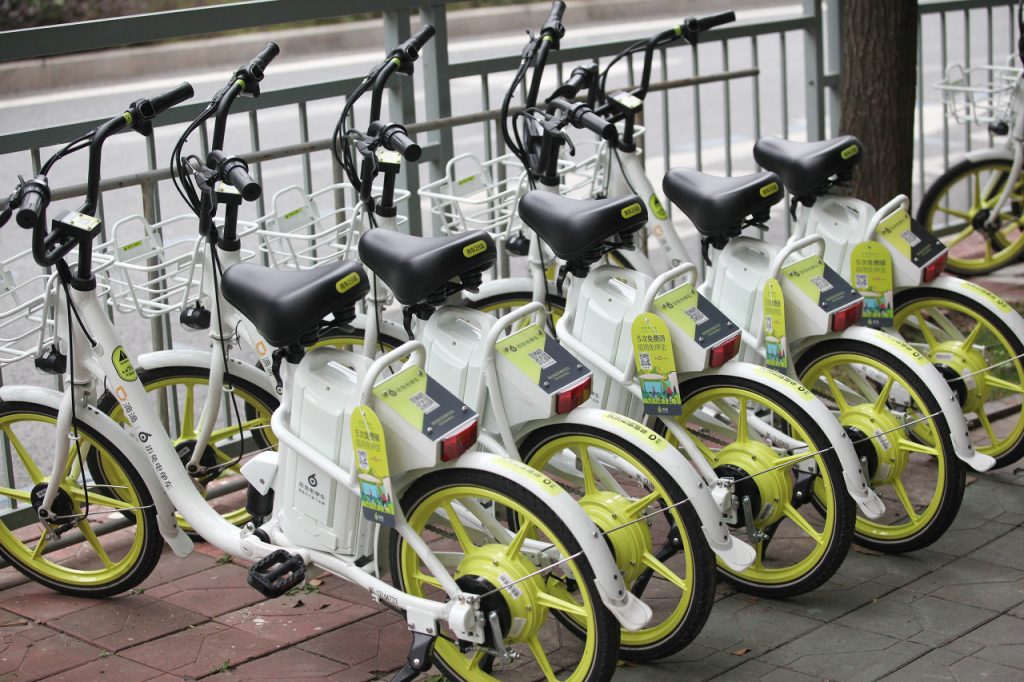In early 2017, the first wave of startups in China were eager to test out the viability of shared e-bicycles.
One company called Number 7 put over 400 electric bicycles onto the streets in Shenzhen, Southern China. But it was immediately reprimanded by local traffic police, who ordered the bikes to be removed. Another startup in Beijing encountered the same fate after operating its fleet of 50 e-bikes for just two days.
China’s Ministry of Transport followed up with an official ban for shared e-bicycle businesses a few months later that year. The Ministry had safety concerns and at that time there was a lack of national standards for e-bikes.
And indeed, safety concerns seemed warranted. From 2013 to 2017, more than 56,000 traffic accidents occurred that involved e-bikes, leading to over 8,000 fatalities and 63,000 injuries, according to statistics from the Ministry of Public Security. There were 34 fire incidents in the same period (which included faulty charging stations setting houses on fire), together taking nearly another 160 lives, it said.
Two years on, e-bikes seem ready for a reform and renaissance.
In April, the government implemented nationwide standards that stipulate manufacturing specifications such as travel speed and battery size. These rules had been announced by the Ministry of Industry and Information Technology (MIIT) along with other three government departments in May 2018, with a nearly one year transition period for companies to achieve compliance.
“The new guidelines show the government’s efforts to regulate and further shore up the development of e-bikes,” said Xu Zhe, the general manager of Alipay’s ride-sharing business. Owned by Ant Financial, Alipay is one of China’s top two online payment platforms along with WeChat Pay.
To meet the standard, electric bicycles must come with a pedaling function, with speed limits capped at 25 kilometers per hour. The vehicle’s weight, including a rechargeable battery, can’t exceed 55 kilograms. Fireproofing and charger protection systems must also be in place to enhance safety during the charging process. Certain models which do not meet the requirements will be classified as electric motorcycles, which need license plates and drivers’ licenses.
Joining the ride
With the government giving the green light, a number of companies have saddled up for what they say could be a new trend in the sharing economy. China is already the world’s leader for shared self-pedaling bikes, after the sector took off in late 2016, with startups such as Mobike, Ofo, Hellobike and Bluegogo taking center stage.
But market watchers are reserved — they said substantial investments are needed to lure users to ride on those electric two-wheelers, as wide accessibility of charging stations are key to mass adoption.
China prides itself as the world’s largest producer of bicycles. From January to May, it manufactured a total of about 16 million pedaling bikes and e-bikes, according to MIIT. Of that, e-bikes accounted for over 10 million, showing their growing popularity over the self-pedaling peers.
E-bikes are critical to China’s vast numbers of food deliverymen and couriers especially in the first- and second-tier cities, and they also serve as a means of transportation in smaller counties and towns.
That’s why Yongyou Zhixing, an e-bike maker, is setting its sights on counties for its new service. According to co-founder Gong Haile, the company plans to offer self-service battery pick up stations for riders so that they can swap depleted batteries with fully-recharged ones.
Yongyou Zhixing in June announced that it had secured a Series A financing round worth “tens of millions of yuan,” led by Wanda Investment and with the participation of Xiaoyao Capital, according to a report by 36Kr. Yongyou Zhixing was valued at RMB 500 million (USD 71 million) at that time.
In the same month, bike-sharing operator Hello Chuxing and Ant Financial joined forces with Contemporary Amperex Technology, China’s largest electric-vehicle battery maker, to set up a RMB 1 billion joint venture. Chen Jun, director at Hello Chuxing, said the venture plans to roll out battery-swapping service for e-bikes mostly targeted at second- and third-tier cities.
Even ride-hailing behemoth Didi Chuxing has ambitions in the sector.
The SoftBank-backed company released an internal email in June, saying it plans to merge its e-bike unit “Jietu” and pedaling bike unit “Qingju” into a new two-wheeler business. The move is aimed at improving operational efficiency of the new business to complement its core ride-hailing business as Didi aspires to be China’s top provider of transport services.

Speedbumps ahead
Despite the investment rush, analysts said companies should adopt a wait-and-see attitude towards the sector.
“Although counties are suitable places for e-bikes, basically every family already owns one, so the acceptance of shared e-bikes remains to be seen,” said Ran Chuangchuang, a mobility analyst at iResearch.
Luo Bin lives in a small town in the city of Danyang in China’s eastern Jiangsu Province. He has three e-scooters at his home and said he prefers to stay with his own two-wheelers. “They are frequently used, so it’s more convenient to buy one instead of hopping onto a shared e-bike,” he said.
Zhao Nan, an investment partner at Vertex Ventures and an early investor in Mobike, said companies must have deep pockets if they want to go down the e-bike path. The operational costs of e-bikes are much higher than those of pedaling bikes, and it isn’t a game for all to partake, Zhao warns.
The story first appeared on WeChat public account Ran Caijing. 36Kr, KrAsia’s parent company, was granted the rights to adapt it into English.
Contact the writer at [email protected]
